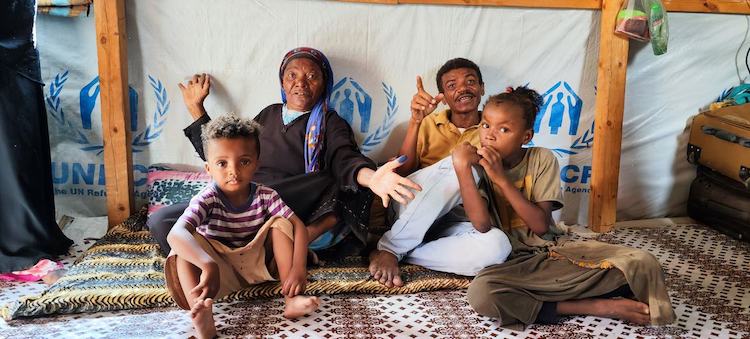By Thalif Deen
UNITED NATIONS, 27 February 2023 (IDN) — The United Nations once described the deaths and destruction in the eight-year-old civil war in Yemen as “the world’s worst humanitarian disaster”.
The killings of mostly civilians have been estimated at over 100,000, with accusations of war crimes against a coalition led by Saudi Arabia and the United Arab Emirates (UAE).
In a virtual conference in Geneva on February 27, aimed at generating humanitarian aid, international donors pledged about $1.2 billion—falling far short of the UN’s estimated target of $4.3 billion.
Ferran Puig, Oxfam’s Country Director in Yemen, said the money pledged was “nowhere near enough”.
“The world must not look away while Yemen faces a humanitarian crisis — the consequence of doing so will be tragic”.
Currently, 17 million people are going hungry and at risk of becoming acutely malnourished.
“The struggle we see people endure every day is heart-breaking, and many Yemenis are likely to die unless the funds needed are donated,” Puig said
The international community also needs to urgently push the warring parties towards a negotiated peace. Eight years of war have destroyed Yemen’s economy creating ripples of misery for everyone.
“Those who were previously secure and able to provide for themselves and their families can no longer do so. There is a food crisis, a currency crisis and a health crisis—the country is already on life support”, declared Puig.
Described as the “poorest of the world’s poor” in an oil-blessed Middle East, Yemen continues to be categorized by the United Nations as one of the 46 least developed countries (LDCs), depending heavily on economic and humanitarian aid while battling for survival.
The UN Children’s Fund (UNICEF) said last year that more than 10,000 children have been killed or maimed since the escalation of the conflict, between a pro-Government Saudi-led coalition and Houthi rebels. The killings and casualties, UNICEF said, was the equivalent of four children every day.
These are just the incidents the United Nations has been able to verify, so the true figure is “likely far higher”, said the agency.
At the pledging event, which was co-hosted by the governments of Sweden and Switzerland, UN Secretary-General António Guterres said that 2022 ended with a measure of hope for the future of Yemen.
“After years of death, displacement, destruction, starvation, and suffering, the truce delivered real dividends for people. Civilian flights resumed from Sanaa; vital supplies arrived through the port of Hudaydah. “
But the truce lapsed after only six months although key provisions have rem
Guterres painted a grim picture of the current situation in Yemen. “Today, more than 21 million people – two in three Yemeni children, women, and men—need assistance and protection”
He said there is a daily struggle for survival. Parents unable to feed their children. Women and girls too afraid to walk to school or even venture outside. Families losing whatever hope they had left to ever return home.
“Beyond sustained support, our humanitarian colleagues and partners need sustained access to people in need.”
He said bureaucratic impediments, interference, movement restrictions – particularly in Houthi-controlled areas—make it that much harder to reach affected populations.
Even worse, aid workers themselves are increasingly coming under attack, he pointed out.
“I call on all parties to the conflict to facilitate the safe, rapid, and unimpeded passage of humanitarian relief to all civilians in need, in line with obligations under international humanitarian law.”
He said humanitarians—including female Yemeni aid workers – must be able to carry out their work safely, independently, rapidly, and without hindrance or arbitrary restrictions.
“And allow me a very personal observation. When I was High Commissioner for Refugees, I visited Yemen several times—and I have been from Saada to Aden, from East to West. And I will never forget the enormous generosity of the Yemeni people.
At the time, even with all the problems, with all the difficulties, Yemenis were receiving Somali refugees in big numbers, coming to the coast, and they were granting to all of them prima facie refugee status.”
“I don’t know many developed countries in the world able to give prima facie refugee status to Somali refugees. “
This extraordinary generosity needs to be matched by our own solidarity with Yemeni people, Guterres declared. [InDepthNews]
Image: A family sit in their shelter at a displaced persons site in Aden, Yemen. © UNHCR/Ahmed Al-Mayadeen
IDN is the flagship agency of the Non-profit International Press Syndicate.
Visit us on Facebook and Twitter.
We believe in the free flow of information. Republish our articles for free, online or in print, under Creative Commons Attribution 4.0 International, except for articles that are republished with permission.

